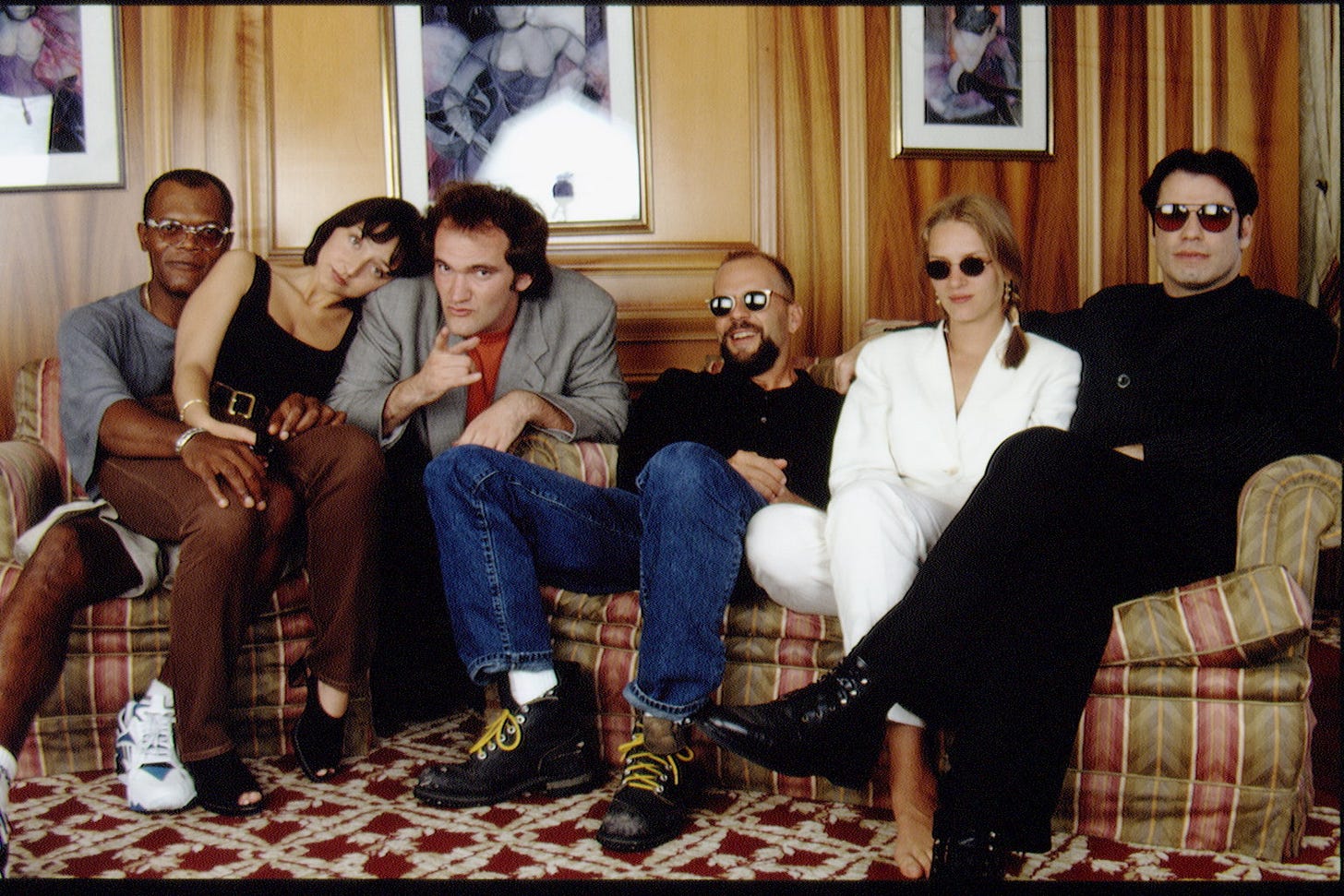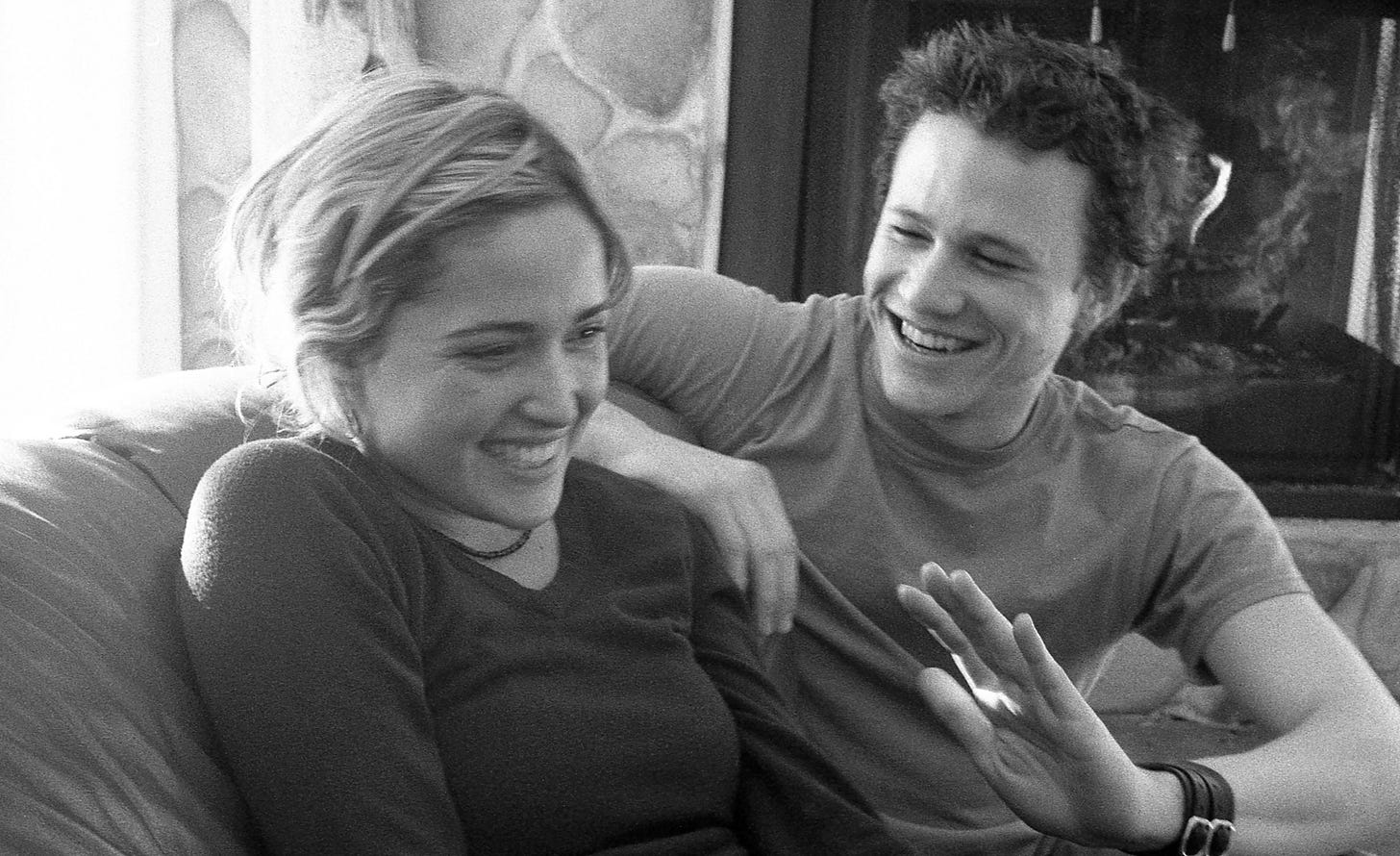Hollywood's Golden Ages: The 1990s
How Sundance and an indie revolution beat the big guys

Welcome to Golden Ages, a five-part series this week about four of Hollywood’s most fecund eras, the elements that had to come together for them to produce such iconic work, what went right and why — and, of course, how each ultimately fell apart. We’ve covered the 1930s and 1970s. Today: the 1990s.
And so the tides turn. The liberation of the 1970s gave way to the blockbuster-obsessed dreariness of the 1980s with risk-taking and the open doors of the '70s giving way to cautiousness and stifling conformity. We thought we’d get more raw and edgy films like Saturday Night Fever; instead, we received polished and safe fare from John Hughes. TV was equally hidebound and buttoned up: Despite a few standout exceptions like Hill Street Blues and Cheers, the television of the 1980s represented a huge leap backward from the creative energy that powered shows like Mary Tyler Moore a decade earlier.
We covered some of the culprits for the dissipated effervescence of the filmmakers and producers yesterday, but the '80s were also defined by corporatization and consolidation that saw both Coca-Cola and Rupert Murdoch come to Hollywood as well as MGM change hands multiple times.
But as always happens in Hollywood, despite the industry’s own best efforts to stifle talent and creativity, it finds a way. As Hollywood became as controlled and restrictive as it had ever been, bubbling up from the basement came a new world called independent film, a surging Sundance Film Festival, and a group of young producers at upstart indie production companies with names like Donna Langley, Michael De Luca, Jason Blum, Tom Rothman and Mary Parent entered the fray. All that pumped new vitality into the business. Before Hollywood knew it, another Golden Age was upon it.
Let’s look again at the taxonomy of success: What (and who) really made Hollywood in the '90s work?
Element #1: Again, Variety of Choice
The essential consideration in assessing whether we have a Golden Age is the source of success. If only one thing was going right, or one studio had a hot streak, that’s simply not good enough. There must be a general wave of triumphs across different places and genres.
Compare the film slate of the '90s to the, ahem, more limited palette of 2024, and it’s staggering just how many things were going right and on so many levels. Every film genre (and subgenre) produced remarkable films — high comedies (Four Weddings and a Funeral), low comedies (There’s Something About Mary), adventure films (Speed), historical adventures (Apollo 13) — as well as such genre-defying breakthroughs as Pulp Fiction and Being John Malkovich. Plus a veritable cornucopia of quirky, delightful independent films breaking into the mainstream on a regular cadence.
One way of looking at the '90s is to view it as a time when the industry as a whole achieved the perfect balance between the new and the familiar. When beloved stars played in recognizable genres and delivered comfort-film foods, but also pushed the boundaries to novel and different places.
Of late a sort of cult has formed around the year 1999. Something of a campaign has emerged to have it officially recognized as the greatest year in film history. There is a book, Best. Movie. Year. Ever.: How 1999 Blew Up the Big Screen. An essay from the late saint of modern criticism, Roger Ebert, has become the Magna Carta of the movement. As he wrote,
The Telluride and Toronto festivals had already started lobbing in great new films, and by the time I saw Being John Malkovich and Three Kings early in October, it was clear that Hollywood’s hounds of creativity had been set loose and were running free. The last four months of 1999 were a rich and exciting time for moviegoers — there were so many wonderful films that for the first time in a long time, it was hard to keep up.

While purists (like myself) might argue that while the year gave us many enjoyable films, few of them scale the heights of the pantheon, this increasingly seems like an outlier opinion. Another essay, this time in the Guardian, seeks to neutralize my critique while asserting the case:
It’s not that films such as The Virgin Suicides, The Sixth Sense and Fight Club are better than everything else that came before or after, but that 1999’s harvest was a bumper crop. That year’s freakish climate saw cross-pollination between Hollywood studios with money and independent-minded film-makers with vision. It was a period that saw cinema creating the culture instead of second-guessing it.
That is hard to argue with. For one brief shining moment, everyone was being themselves doing their best work all over the spectrum. The indie movement had broken through, and it had not yet been co-opted and swallowed up.
To complete the case, a list of just some of the near-classics from just that one year, 1999:
The Sixth Sense; Toy Story 2; The Matrix; Notting Hill; All About My Mother; The Insider; Magnolia; The Talented Mr. Ripley; Election; Being John Malkovich; The Blair Witch Project; Office Space; Cruel Intentions; 10 Things I Hate About You; A Walk on the Moon; Go; Run Lola Run; South Park: Bigger, Longer and Uncut; Summer of Sam; American Pie; Eyes Wide Shut; Dick; The Iron Giant; The Sixth Sense; Detroit Rock City; The Muse; Three Kings; The Limey; Fight Club; The Straight Story; Boys Don't Cry; Bringing Out the Dead; Princess Mononoke; American Movie; Sweet and Lowdown; Topsy Turvy; Girl, Interrupted; Any Given Sunday; Galaxy Quest.
That is pretty ridiculous. That is one year. (If you disagree with my choices, compile your own list. I did not inadvertently leave any film off.) Maybe there's nothing on this list knocking Citizen Kane off the all-time top slot, but if any of the 39 films on this list were released today, it would immediately be a contender for the best film of this year.
And considered a miracle that it happened.
Element #2: New Blood and Youth
The list of directors who sprang out of Sundance during this era to become Hollywood stalwarts is seemingly endless. While everyone can point to Quentin Tarantino, Richard Linklater and Guillermo Del Toro and the films that they and their many peers made that went from festival darling to general-audience phenomenon, there’s more to the story.





